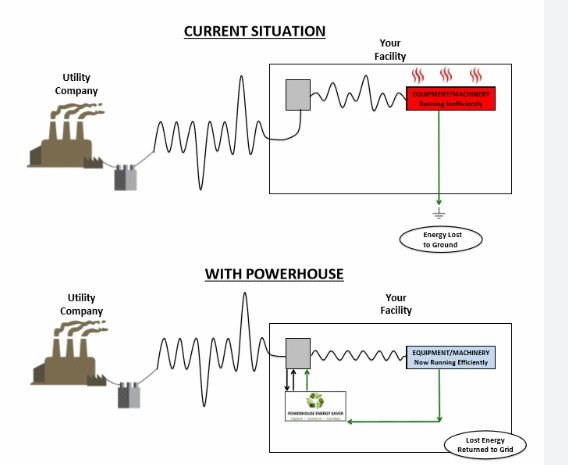Power conditioning units, often referred to as inverters or power conversion systems (PCS), are vital tools for anyone relying on the smart grid. These devices play a crucial role in enhancing the quality of incoming electricity, protecting your sensitive electronic equipment from fluctuations and disturbances in power supply. By regulating voltage levels and minimizing electrical noise, power conditioning units ensure that your devices function optimally, thereby enhancing their lifespan and energy efficiency. In this post, we will investigate into what power conditioning units are and explore their numerous benefits for your electrical systems.
Key Takeaways:
- Definition: A power conditioning unit (also known as an inverter or power conversion system) enhances the quality of incoming power by regulating electricity flow and minimizing harmonics.
- Enhanced Lifespan: By maintaining consistent voltage levels, power conditioning units protect sensitive electronic devices from voltage fluctuations, ultimately extending their lifespan.
- Minimized Downtime: These units provide immediate protection against power surges and spikes, reducing the risk of damage and preventing costly operational interruptions.
- Improved Energy Efficiency: Power conditioning units contribute to enhanced energy efficiency by filtering out electrical noise and harmonics, leading to reduced energy consumption and costs.
- Support for Renewables: In a smart grid and microgrid context, power conditioning units ensure efficient and reliable energy conversion from renewable sources, facilitating optimal power supply for connected devices.
Understanding Power Conditioning Units
While navigating the complexities of modern electrical systems, understanding power conditioning units (PCUs) is necessary for anyone seeking to maintain the integrity of their electronic devices. These systems enhance power quality by regulating voltage and minimizing disturbances, ultimately leading to a more reliable power supply.
Definition and Functionality
One of the primary purposes of a power conditioning unit is to act as a filter that eliminates electrical noise and voltage fluctuations. By providing stable and consistent electricity, these units protect your sensitive equipment from potential harm while ensuring efficient power delivery.

Types of Power Conditioning Units
| Type of Power Conditioning Unit | Description |
|---|---|
| Linear Power Conditioners | Provide clean and stable output voltage by eliminating voltage fluctuations. |
| Noise Filters | Remove high-frequency electrical noise from the power supply. |
| Voltage Regulators | Ensure constant voltage levels, protecting against surges and dips. |
| Surge Protectors | Shield equipment from voltage spikes caused by lightning or grid issues. |
| Uninterruptible Power Supplies (UPS) | Provide backup power during outages, maintaining performance continuity. |
Importance of Power Quality
Even the most advanced electronic devices can fall victim to poor power quality, which is why understanding its importance is necessary for protecting your valuable investments. Power quality refers to the consistent voltage and frequency of electrical supply, and any imbalances can lead to significant operational issues. By prioritizing power quality, you can safeguard your equipment and ensure that your operations run smoothly.
Impact of Voltage Fluctuations
The instability of voltage levels can adversely affect your electronic devices, leading to premature wear and tear. Fluctuations can cause components within your devices to overheat, operate inefficiently, or fail entirely, resulting in costly replacements. By utilizing a power conditioning unit, you can stabilize voltage and extend the life of your equipment.
Consequences of Power Disturbances
On the other hand, power disturbances can lead to severe operational setbacks, affecting both productivity and efficiency. Sudden spikes or drops in voltage can cause malfunctions or shutdowns in your equipment, disrupting your daily operations and resulting in financial losses. Protecting your system with power conditioning units is vital in mitigating these risks.
Benefits of Power Conditioning Units
Enhanced Lifespan of Electronic Devices
Enhanced lifespan of your electronic devices is one of the standout benefits of power conditioning units. By maintaining consistent voltage levels and regulating fluctuations, these units protect your sensitive components from potential damage, significantly reducing the likelihood of premature wear and tear.
Minimized Downtime
Electronic devices are highly susceptible to power surges, which can cause significant damage in a matter of milliseconds. By incorporating power conditioning units, you can prevent these detrimental electrical events, ensuring your equipment remains protected.
Downtime can be costly. When your systems experience power surges or spikes, the immediate risk to your devices increases, leading to potential operational interruptions. Power conditioning units act as active power filters, detecting and suppressing harmful electrical noise, which helps to maintain uninterrupted service and enhances your workflow efficiency.
Improved Energy Efficiency
Energy efficiency is another key benefit of implementing power conditioning units. By filtering out noise and harmonics, these units optimize the quality of electricity supplied to your devices, reducing unnecessary energy consumption.
A stable power source allows your electronic devices to perform at their best, decreasing energy waste caused by distorted waveforms or electromagnetic interference (EMI). This improved efficiency not only leads to lower electricity bills but also supports sustainability efforts, aligning with practices aimed at minimizing your carbon footprint.
Conclusion
With this in mind, a power conditioning unit, or inverter, is necessary for maintaining the stability and reliability of your electronic equipment within smart grids and microgrids. By managing voltage fluctuations and minimizing electrical noise, these units not only enhance the lifespan of your devices but also reduce the risk of downtime and improve energy efficiency. Investing in a power conditioning unit equips you with the ability to protect your valuable technology, ensuring optimal performance and cost savings in the long run.
FAQ
Q: What is a Power Conditioning Unit and how does it function?
A: A Power Conditioning Unit (PCU), commonly known as an inverter or Power Conditioning System (PCS), is an electrical device designed to enhance the quality of electricity supplied to sensitive electronic equipment. It functions by regulating voltage levels, filtering out electrical noise, and minimizing harmonics in the power supply. By acting as a buffer, a PCU ensures that the devices connected to it receive a stable and clean power supply, which is crucial for the efficient operation of technologies within smart grids and microgrids.
Q: What are the key benefits of using a Power Conditioning Unit?
A: Power Conditioning Units offer key benefits, such as enhancing the lifespan of electronic devices, minimizing downtime, and improving energy efficiency. They maintain stable voltage levels, control electrical fluctuations, act as active power filters to detect and suppress power surges, and filter out electrical noise and harmonics. This leads to lower energy consumption, reduced electricity costs, and a positive impact on the environment.
Q: How do Power Conditioning Units contribute to the reliability of smart grid systems?
Power Conditioning Units are essential for ensuring the reliability of smart grid systems. By regulating power flow and mitigating issues like voltage spikes, surges, and electrical noise, PCs provide a consistent power supply for sensitive electronic equipment, protecting devices and supporting grid efficiency.






